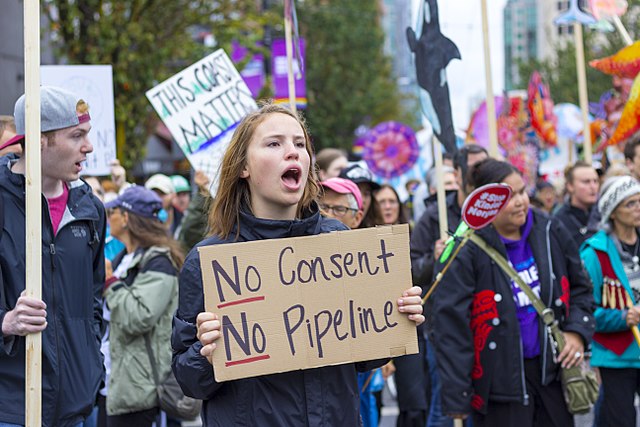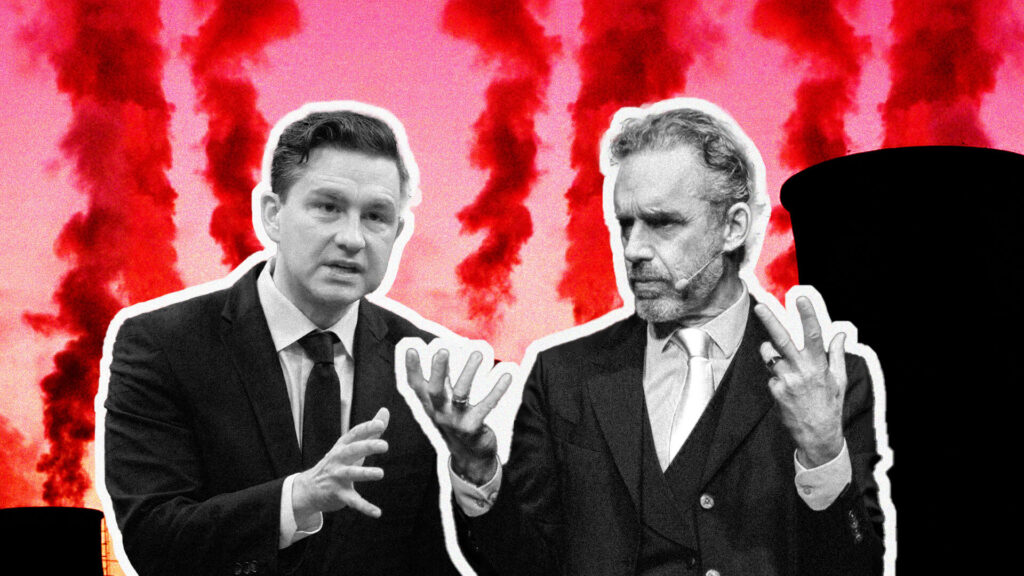The Canadian government quietly approved a staggering $20 billion loan to support the Trans-Mountain Expansion (TMX) pipeline. According to Canadian environmental advocacy organization Environmental Defence, this raises the Canadian government’s total financial commitment to the pipeline to $50 billion, drawing sharp criticism from environmentalists and economists.
“At a time when Canada should be accelerating its clean energy transition, providing $20 billion in public financing for the TMX pipeline is a step in the wrong direction,” Laura Cameron, a policy advisor with the International Institute for Sustainable Development (IISD) who specializes in fossil fuel subsidies, told DeSmog in an email.
Cameron said the Trudeau government’s TMX loan places more long-term financial risk on taxpayers and further subsidizes a profitable industry amid an affordability crisis.
Subscribe to our newsletter
Stay up to date with DeSmog news and alerts
The pipeline, which the Canadian government purchased in 2018 for $34 billion CAD and began operating in May 2024, moves diluted bitumen from Alberta through the Rocky Mountains to terminals on Canada’s Pacific coast. The new loan comes on the heels of Donald Trump’s threats of a trade war and internal pressure for Canada to be less economically dependent on trade with the United States. Despite that, the loan was, in fact, authorized by the Trudeau government in December 2024.
Export Development Canada’s Canada Account is providing the funding. Environmental Defence notes that the crown corporation administers the account, but the federal government oversees it.
“[The loan is] a violation of the federal government’s promise not to provide further public money to the project,” Julia Levin, associate director of National Climate with Environmental Defence, said in a statement.
According to Levin, this brings the total amount of the Canadian government’s financial support to the oil and gas industry last year to $28.5 billion.
“This newest massive loan will only benefit CEOs from the oil and banking industry, while Canadians – already struggling with an affordability crisis – will be left on the hook to cover the costs,” said Levin.
Taxpayers End Up Supporting Big Oil
Research by the IISD reveals that, despite Canada’s frequent pledges to end fossil fuel subsidies, the country continues funneling tens of billions of taxpayer dollars into the pockets of profitable oil and gas companies.
The IISD notes that it’s difficult to judge how much money Canada provides the oil and gas sector due to a consistent lack of transparency and failure to deliver on promises to publish a comprehensive list of direct and indirect subsidies.
“A recent IISD report found that TMX is operating at a loss and will only recover the full investment if government acts to make oil companies pay the full cost,” IISD’s Cameron said.
Instead of supporting the oil industry, “shifting public financing to support industries with long-term growth trajectories will bolster domestic economic security, create good stable jobs, and reduce our reliance on volatile fossil fuels,” she added.
Analysis by DeSmog reveals that TMX may never have been financially viable in the first place. The project was nearly abandoned by its original developer — Kinder Morgan — in 2018. Despite that, the Trudeau government capitulated to pressure from the fossil fuel sector and their lobbyists and political allies, who had long argued that the nation’s insufficient pipeline infrastructure made Canada overly reliant on the United States. In addition, anticipated Asian demand for fossil fuels from Canada never materialized and the pipeline has been operating at a loss since its launch in May 2024.
TMX is now the most expensive infrastructure project in Canadian history, estimated to be roughly 40 times more than what Ottawa invested in renewable power generation between 2014 and 2020. Experts say it is unlikely to recoup its costs, let alone turn a profit, because the government charges tolls amounting to less than half of what’s required to pay the pipeline’s capital costs.
“Oil industry CEOs and their political supporters have been quick to exploit the current uncertainty sparked by President Trump’s tariff threat by insisting the answer is more oil and gas pipelines,” Environmental Defence’s Levin said in a statement.
“Let TMX be a warning: It’s taxpayers who end up paying the price, as multinational, foreign-owned companies reap the rewards,” she added. “More fossil fuel infrastructure is not a winning strategy for Canadians or the planet.”
The Fossil Fuel Playbook: Exploit the Crisis
Trans Mountain has stated it expects Trump’s tariff threats to increase interest in its pipeline, which transports roughly nine percent of Canadian oil. Much of the rest flows south to U.S. refineries. In an emailed statement published by Reuters, the pipeline operator stated that exports to Asia will likely increase along with further discounts.
Keith Stewart, senior energy strategist with Greenpeace Canada, thinks it’s possible that tariff threats from the Trump administration may lead to more Canadian oil flowing toward Asian markets. However, he is more concerned with how the fossil fuel sector will seek to capitalize on a crisis that may arise from tariffs to lobby for new pipelines.
“This is a very old playbook, where the oil industry is looking to take advantage of a crisis to brush aside environmental and health protections,” Stewart said in an emailed statement.
“[Fossil fuel leaders] backed Trump’s campaign for President with mega-donations, and now they want to bring Trump-style environmental rules here,” he said. “But we should no more accept this than we do his demand that Canada become the 51st state.”
Stewart argues that Canada should look to Europe’s example when Russian President Vladimir Putin used oil and gas exports as economic leverage when his country invaded Ukraine in 2022. In response, Europe accelerated its shift to renewable energy, which ultimately protected its economy and environment.
“Doubling down on oil now, as the world is switching to electric vehicles and heat pumps, would be like buying a Blockbuster franchise as Netflix is taking off,” he said.
Environmental Defence’s Levin agrees the oil industry and its political supporters often try to profit from global crises.
“We’ve seen it before, for example, in response to the crisis in Ukraine,” said Levin.
“The response from the fossil fuel industry is always the same: Do away with regulations, build more pipelines, remove limits to pollution, and scrap environmental assessments,” she said in an email to DeSmog. “Of course, none of those things would actually help with the current situation.”
Stewart notes that the oil industry supports Trump, who, while campaigning for president, promised Big Oil deregulation in exchange for campaign donations. The industry is estimated to have provided Trump’s re-election campaign with about $170 million (USD). In Canada, Conservative Party leader Pierre Poilievre also promises to deregulate the fossil fuel industry if he becomes Prime Minister, which is likely.
“He has said he will kill the oil and gas pollution cap, the clean electricity regulation, the low-carbon fuel rule, and the Impact Assessment Act while building pipelines in all directions,” Stewart noted.
Subscribe to our newsletter
Stay up to date with DeSmog news and alerts







